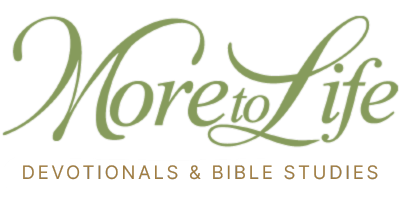Leviticus 23:2 states, “Speak unto the children of Israel, and say unto them, Concerning the feasts of the LORD, which ye shall proclaim to be holy convocations, even these are my feasts.”
This week, our devotions will cover the seven feasts the Jews were to celebrate throughout the year.
These feasts became a beautiful preparation for celebration, reflection, rest, fellowship, and special gathering. I heard a minister liken these feasts to a Thanksgiving dinner in North America. Sure, we eat dinner every day, but Thanksgiving dinner happens only once a year, and there is excitement attached to the day. We spend hours preparing the menu, grocery shopping, decorating, cooking, and baking. Some of us travel for hours in a car or take a flight to be with family and close friends. It is a time we gather together for a special meal. It is a special day that is set apart from other days. This is how the seven feasts of Israel were. They were set apart and scared.
The Feast Of Passover
The sacred feast of the Passover reminded the Israelite nation of their deliverance from bondage. They were to live out their testimony of being delivered from Egypt every year and share with the next generation God’s power, faithfulness, and provision. With the oral tradition of sharing stories, these experiences would live on throughout all generations.
God did not charge His people to have holy convocations just to commemorate a historical occurrence, He was inviting His people to pause and reflect on a defining moment of their new beginning when He heard their cry in Egypt and delivered them miraculously. The Passover marked the beginning of their year, just like January 1st marks our new beginning.
The lamb’s blood painted on the doorposts was more than a symbol. It was a foreshadowing of the ultimate Lamb—Jesus Christ—whose sacrifice delivers us not just from bondage in Egypt, but from the bondage of sin and death.
Every time the Passover was observed, it reminded God’s people: You were once enslaved, but now you are free. Not by your own strength, but by the hand of a mighty and merciful God.
Jesus Is Our Passover Lamb
Christ is the Passover Lamb who has taken away the sin of the whole world (1 Corinthians 5:7 and John 1:29). In His death on the cross, Jesus fulfilled the true meaning of the Jewish sacrifice by being crucified on Passover day (Isaiah 53:7; John. 1:29; Exodus 12:8). The blood of innocent animals that was shed to cover the humiliation and shame of Adam and Eve is symbolic of Christ’s sacrifice on the cross, granting an unrighteous sinner can clothe themselves in Christ’s righteousness.
Jesus didn’t go to Calvary as a victim; He went to Calvary during the Passover, bearing His body as a sacrifice of the Passover lamb to atone for the sins of the whole world.
God valued humanity so much that He robed Himself in the flesh of a human and then laid His life down to pay the price of redemption for our sins (1 Corinthians 6:20; 7:23).
For Christians today, the Passover feast points us to the Lord’s Supper, where Jesus, during a Passover meal, said, “This is my body… This is my blood.” (Luke 22:19-20). Jesus, who became our Passover lamb, now delivers us from our sin and covers our lives with the blood He shed on Calvary.
Thank you, Jesus, for your sacrifice!
Journal Prompt:
Reflect on a time when God delivered you from something, whether it was a situation, a mindset, a fear, or a sin. What did that “bondage” feel like, and how did God lead you into freedom? How can you regularly remember and give thanks for that deliverance, just as Israel remembered the Passover? Write down how thankful you are for everything He has done in your life.
Prayer:
Lord, thank you for delivering me! I remember what my life was like before I gave my life to you, and I don’t know where I would be without Your saving grace. Thank you for delivering me out of my personal Egypt, I never want to forget where you brought me from, and I want to continue to testify of Your power, strength, and delivering power. I love you, Lord. You are a great and mighty God.
This devotion was written by Angela Overton.




Comments are closed.